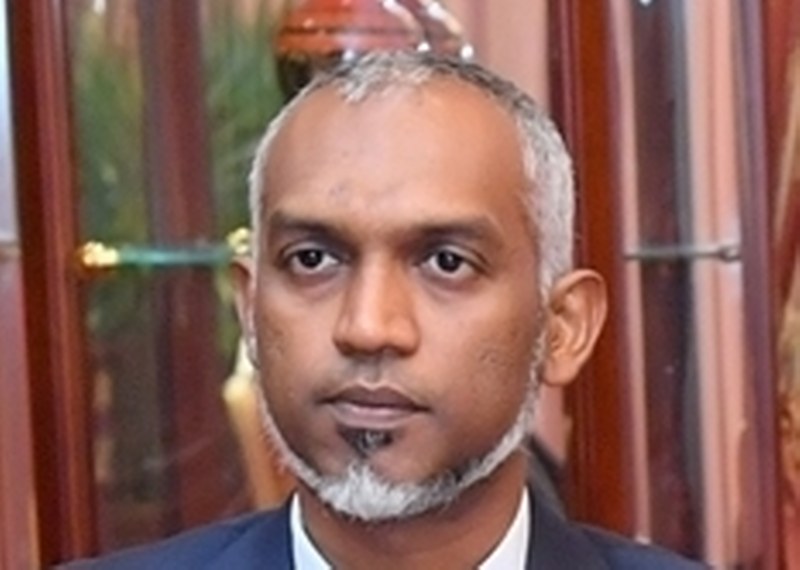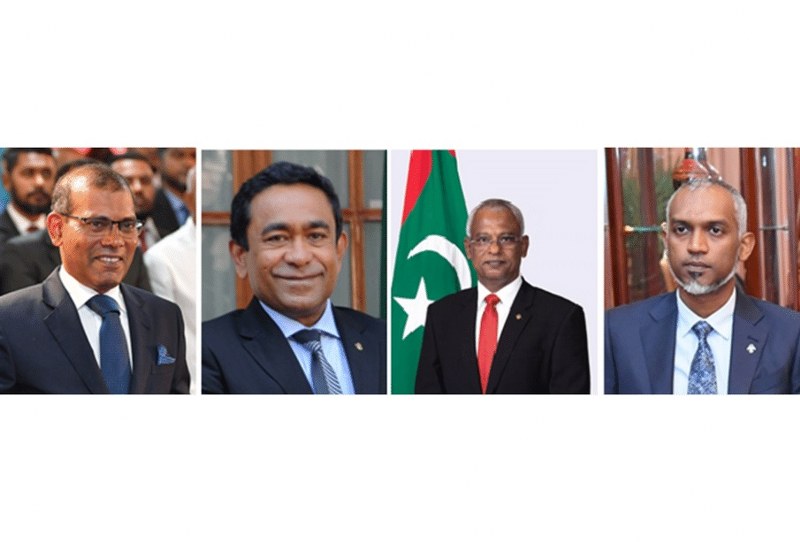 Maldives
Maldives
Powershift in the Maldives
In the brief history of the Maldives’ democracy, no president was re-elected for a second term. The opposition candidate, Mohamed Muizzu, won the presidential runoff election held on September 30 and will soon form a new government.
Given that the Maldives, with over 1190 islands, is strategically located close to vital sea lanes of trade in the Indian Ocean, the elections elicited considerable international attention.
About a few months ago, it was expected that the presidential elections would be between former President Abdulla Yameen and current President Ibrahim Mohamed Solih.
However, after the arrest of former president Yameen on corruption charges, his protégé Mohamed Muizzu emerged as a principal opposition candidate of the Progressive Party of Maldives (PPM) and People’s National Congress (PNC) for the 2023 elections.
Mohamed Muizzu, the current Mayor of Male’ City, was a housing minister in President Yameen’s administration and played an important role in the operationalisation of the China-Maldives Friendship Bridge. Educated in the United Kingdom and a civil engineer by training, Mohamed Muizzu emerged as a formidable candidate.
In the run-up to elections, President Solih had acquired a reputation as a competent administrator for handling the COVID pandemic. He implemented progressive policies such as the minimum wage policy, six-month paid maternity leave and one-month paid paternity leave.
However, there was considerable disarray in the ruling Maldivian Democratic Party (MDP). During the primary election, there was an intense and bitter campaign between President Solih and parliament speaker Nasheed for the party’s leadership.

There were concerns that parliamentary speaker Nasheed’s supporters may not fully support President Solih, who won the primary elections. Further, Nasheed said that “former President Yameen is an intellectual”, and the only difference of opinion he has with Yameen is the ‘India Out’ approach.
Nasheed left the MDP and joined the Democrats. It is likely that the ruling MDP vote got fractured in the run-up to the presidential elections.
On September 09, the first round of the presidential election was held with approximately eight candidates. The principal opposition candidate, Mohamed Muizzu, received about 46.06% of the vote share, while the current president, Solih, received about 39.09%.
Since none of the presidential candidates could get over 50% of the vote share, a run-off election was organised subsequently.
The smaller parties, such as the Democrats and leaders, such as Nasheed, became critical in tilting the voters who did not vote for Solih and Muizzu.
President Solih’s MDP reportedly tried to build a coalition for the presidential run-off election, which did not materialise. Most of the smaller parties adopted a neutral stance in the presidential run-off elections.
In the presidential run-off election, the opposition leader, Mohamed Muizzu, registered an electoral victory with a 54% vote, and the current President, Solih, received 46%.
President Solih graciously conceded the election. He congratulated President-elect Muizzu and the people of the Maldives for reposing faith in the peaceful and democratic process. Further, President Solih announced that former President Yameen would be shifted to house arrest from Maafushi prison.
Muizzu must demonstrate considerable political sagacity in managing domestic politics and international engagement. In his initial remarks, he stated that “every Maldivian citizen is equal in my eyes” and declared his intent to build harmony in accordance with the wishes of the people.
Muizzu will have to take along the opposition parties, leaders, and carefully respond to their agendas, such as the shift to a parliamentary system.
The shift to the parliamentary system through a referendum requires constitutional changes approved by the parliament. A few days before the presidential elections, the parliament could not respond to the Election Commission’s request on the question needed for organising the referendum due to a lack of quorum.
It appears that President Solih and many members of his MDP prefer to continue with the existing presidential system. Before the September 30 presidential election, the Democrats and parliamentary speaker Nasheed stated that a parliamentary system would be more appropriate for the country.
While not permanently abandoning the idea, Parliament speaker Mohamed Nasheed said that the efforts to change the governance system will be halted to allow “president-elect Dr Mohamed Muizzu to govern as the next president.” The discussion on the parliamentary system will likely persist for some more time.
Muizzu’s victory is being interpreted as a victory for China in the international media. In his interactions with the representatives of China’s Communist Party in 2022, Muizzu reportedly noted that if his PPM-PNC coalition returns to power, it would “script a further chapter of strong ties between our two countries.”
Responding to such reports, President-elect Muizzu stated that his foreign policy would be “pro-Maldives.”
In addition to the probable pro-China stance, there are concerns about the shrill anti-India rhetoric in certain sections of opposition groups. For more than two years, the Maldives witnessed an India Out campaign launched by opposition parties and led by former president Yameen.
The opposition group claimed that Maldives is hosting a large number of Indian defence personnel, and Delhi may even build a naval base on the Uthuru Thila Falhu (UTF) island. President Solih’s administration vehemently denied these allegations.
According to the Maldives National Defence Force, there are just about 75 Indian personnel operating air services, which are used for surveillance and humanitarian work. And yet, the President-elect Muizzu’ stated: “the people have told us that they don’t want foreign military here…therefore, what I have to say to the ambassador who will come to meet me is, close relations can be maintained based on this condition.”
Given the history of the ‘India Out’ campaign, Delhi will be closely watching the statements and policies of the new government. Despite the apprehensions, the Indian prime minister was quick to congratulate president-elect Muizzu and reiterated the commitment to strengthen the bilateral relationship and enhance overall cooperation in the Indian Ocean Region. Through a congratulatory message, the Indian government has expressed willingness to work with the new government.
Delhi expects that contractual obligations with the Indian firms will be honoured and the Maldives government will continue with its proactive economic engagement with India.
Expressing a similar sentiment, President Solih reportedly requested that president–elect Muizzu to complete the ongoing projects, including the Thilamale bridge. Most importantly, India hopes the new government will adopt prudent fiscal and trade policies. An economically healthy Maldives will not be susceptible to unhealthy international influences.
A genuinely sovereign Maldives, without excessive international debt and overdependence on extra-regional powers, benefits the wider Indian Ocean region as well.
Support Our Journalism
We cannot do without you.. your contribution supports unbiased journalism
IBNS is not driven by any ism- not wokeism, not racism, not skewed secularism, not hyper right-wing or left liberal ideals, nor by any hardline religious beliefs or hyper nationalism. We want to serve you good old objective news, as they are. We do not judge or preach. We let people decide for themselves. We only try to present factual and well-sourced news.






